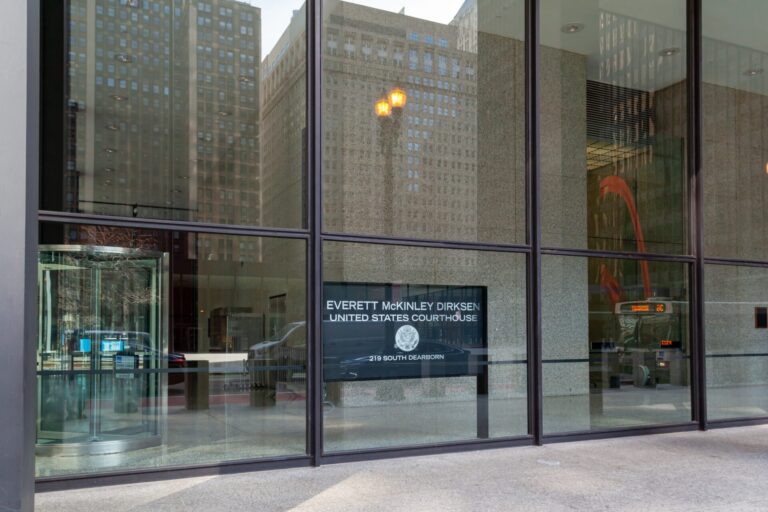Gas Utility National Fuel Used Its Customers’ Money for Lobbying

New evidence shows National Fuel again used ratepayer money for its grassroots lobbying efforts in New York. The large methane gas utility serving 750,000 customers in New York and Pennsylvania sent a letter to its customers last year that urged them to lobby on its behalf to support its long-term energy plan. New York regulators were reviewing the company’s plan at the time.
This latest case continues a years-long pattern in which National Fuel uses ratepayer money to enlist its customers to advocate on its behalf. New York state law prohibits utilities from using ratepayer money for legislative lobbying, and a bill introduced last year would extend that prohibition to grassroots lobbying.
The newly revealed letter also comes at a time when another major gas utility, California’s SoCalGas, made headlines for booking at least $36 million to its ratepayers for political lobbying to undermine California climate policies, according to materials reviewed by the Sacramento Bee. An October 2024 California Public Utilities Commission proposed decision in SoCalGas’ latest rate case also determined that the utility and its parent company, Sempra, inappropriately charged customers for political activities, lobbying efforts, and legal fees that primarily served the company’s interests rather than those of its customers.
“Be a Voice”
In June 2023 National Fuel emailed its customers a three-page letter asking them to support its long-term gas plan. At the time, New York’s Public Service Commission was assessing the company’s plan, which the PSC requires all utilities to submit for review and approval as a means of ensuring compliance with the state’s greenhouse gas reduction goals and landmark climate law, the Climate Leadership and Community Protection Act of 2019 (CLCPA).
In the letter, titled “Long-Term Plan, Be a Voice as New York Determines its Energy Future,” National Fuel asked its customers to advocate in support of the company’s plan.

“As a Western New York resident, an energy consumer, perhaps a business owner or a business advocate and a community stakeholder who supports the important role the natural gas system plays in the lives of all New Yorkers as well as the state economy, your input is needed,” the letter said.
The letter then provided instructions on how the utility’s customers could send comments on the long-term plan to the PSC, including a website link for submissions. The letter also suggested specific language and talking points supporting each principle in the company’s plan.
For example, under “Customer Choice,” National Fuel recommended that its customers write to the PSC: “The LTP [Long Term Plan] preserves customer choice and provides a more affordable option while relying on the gas system to ensure effective heating during the coldest days and nights of the year throughout WNY winters.”
‘Customer’ or ‘consumer choice’ is a common gas industry refrain that objects to any attempts to curb methane gas in people’s houses and businesses.
In December 2023, the PSC rejected National Fuel’s plan and ordered the company to modify it. The PSC also ordered the utility to propose pilot projects testing different scenarios of heat-pump deployment and more thoroughly consider non-pipe alternatives.
Ratepayer Funded
The company disclosed the letter earlier this year as part of its mandatory reports to the PSC on its outreach and education efforts. In October, attorneys with Earthjustice, representing the Alliance for a Green Economy (AGREE) as an intervenor in National Fuel’s current rate case, asked the company whether costs associated with the letter were recorded below the line (e.g., not charged to ratepayers). The company responded that it did not record those costs below the line, an acknowledgment it used ratepayer money to pay for the material.
National Fuel claimed that the letter was meant to “provide educational information to the Company’s largest non-residential customers.”
Earthjustice questioned National Fuel about the letter again during a hearing in the rate case in late October this year. The company acknowledged once more that it charged ratepayers for the costs of sending the letter. While it admitted that in the letter it asked customers to submit supporting comments to the PSC on its behalf and even provided suggested language, it maintained that the letter merely supplied customers “educational information on the long-term plan” and that “there were not any advocacy materials in it.”
A Company Pattern
The letter joins other recent cases where National Fuel used ratepayer money for lobbying. The PSC opened an investigation into National Fuel’s practices after a series of revelations by NY Focus detailed a company-led robocalls campaign against efforts to curb gas, and its use of a ratepayer-funded website intended to promote energy efficiency to urge users to lobby against pro-climate legislation in New York.
The PSC found, as part of its investigation, that the company funded a portion of the lobbying content on its “Fueling Tomorrow Today” energy conservation website from ratepayer money, though the company claimed those costs were charged to ratepayers “inadvertently.”
The PSC also determined that the company intended to charge ratepayers for membership dues in a number of associations that conduct legislative lobbying, a violation of state law. National Fuel claimed that this occurred due to “accounting errors.”
A bill introduced last year by New York Assemblywoman Michaelle Solages sought to bar utilities from charging ratepayers for a host of political influence activities and extraneous costs. It extended the current prohibition on legislative lobbying to grassroots lobbying. The bill is expected to be re-introducted in the upcoming legislative session.



